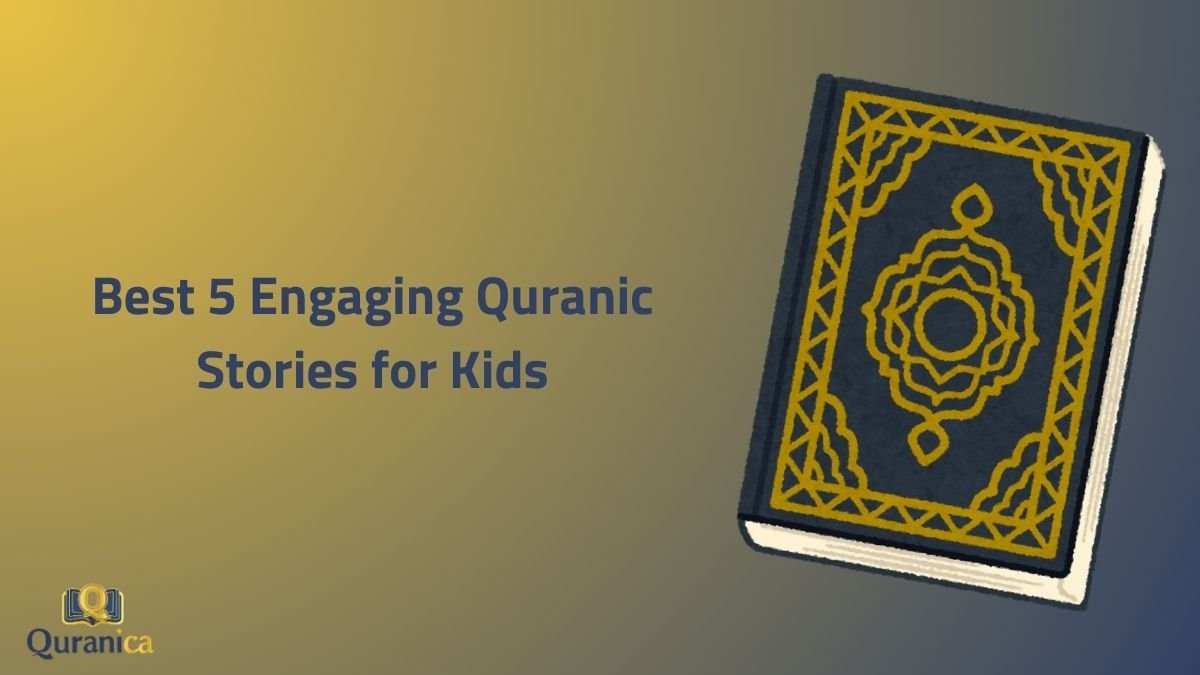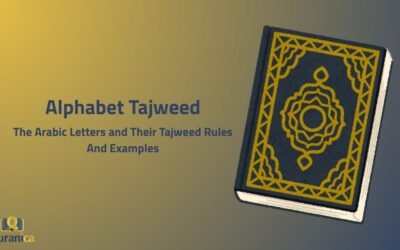Explore interactive classes with expert teachers, structured courses for kids and adults, and personalized learning plans—all from home. Start your journey today with flexible scheduling and one-on-one guidance!
Many of you parents, especially those who don’t speak Arabic, you worry, “How can I teach my children the Quran?” Don’t worry, my friends. Allah makes things easy. And these quranic stories for kids, they are a gift, a blessing. They are not just tales; they are lessons, guidance, and seeds of Iman.
When we say “Quranic stories for Kids,” we mean the tales and accounts mentioned in the Holy Quran, simplified and explained in a way that young minds can easily understand and learn from.
For children, these Quranic stories can be particularly impactful as they learn through narratives and examples.
They can grasp the concepts of right and wrong, the importance of patience, the power of belief in Allah, and many other essential Islamic values through these engaging accounts.
Now, let’s delve into some beautiful Quranic stories that your children will surely love and benefit from:
1. The Amazing Story of Prophet Yusuf (Joseph)
The story of Prophet Yusuf, peace be upon him, is one of the most detailed and captivating narratives in the entire Quran.
It is found in Surah Yusuf (Chapter 12) and is full of twists, turns, and valuable lessons for all ages, including our little ones.
This Quranic story for children teaches them about jealousy, patience in the face of hardship, the importance of trusting Allah, and the beauty of forgiveness.
A young boy named Yusuf who was very handsome and loved by his father, Prophet Ya’qub (Jacob), peace be upon him. His father loved him so much that Yusuf’s brothers became jealous. This jealousy led them to hatch a wicked plan. They took Yusuf away and threw him into a well, telling their father that a wolf had eaten him.
Allah mentions this in the Quran:
“إِذْ قَالُوا۟ لَيُوسُفُ وَأَخُوهُ أَحَبُّ إِلَىٰٓ أَبِينَا مِنَّا وَنَحْنُ عُصْبَةٌ إِنَّ أَبَانَا لَفِى ضَلَـٰلٍۢ مُّبِينٍ ﴿٨﴾ اقْتُلُوا۟ يُوسُفَ أَوِ ٱطْرَحُوهُ أَرْضًۭا يَخْلُ لَكُمْ وَجْهُ أَبِيكُمْ وَتَكُونُوا۟ مِنۢ بَعْدِهِۦ قَوْمًا صَـٰلِحِينَ ﴿٩﴾”
(Remember) when they said: “Truly, Yusuf (Joseph) and his brother (Benjamin) are loved more by our father than we, while we are a group. Indeed, our father is in a plain error. Kill Yusuf (Joseph) or cast him out to some (distant) land, so that the favour of your father may be given to you alone, and after that you will be righteous folk (by repenting to Allah).” (Surah Yusuf, 12:8-9)
Yusuf was rescued from the well by a passing caravan and eventually sold as a slave in Egypt. Despite facing many challenges and temptations, including being falsely accused and imprisoned, Yusuf remained patient and righteous. He trusted in Allah’s plan.
This part of the story teaches our kids that sometimes bad things happen to good people, but if we are patient and trust in Allah, He will always help us. It also shows the terrible consequences of jealousy and how important it is to love and respect our siblings.
Later in his life, through his wisdom and ability to interpret dreams, Yusuf rose to a high position in Egypt. When a famine struck the land, his brothers came to Egypt seeking food, not recognizing their own brother! Yusuf, now a powerful man, recognized them.
Instead of seeking revenge for what they had done to him, Yusuf, with a heart full of forgiveness, treated them kindly. He eventually revealed his identity, and Allah reunited him with his beloved father and brother.
Allah narrates this emotional reunion:
“فَلَمَّا دَخَلُوا۟ عَلَىٰ يُوسُفَ ءَاوَىٰٓ إِلَيْهِ أَبَوَيْهِ وَقَالَ ٱدْخُلُوا۟ مِصْرَ إِن شَآءَ ٱللَّهُ ءَامِنِينَ ﴿٩٩﴾ وَرَفَعَ أَبَوَيْهِ عَلَى ٱلْعَرْشِ وَخَرُّوا۟ لَهُۥ سُجَّدًۭا ۖ وَقَالَ يَـٰٓأَبَتِ هَـٰذَا تَأْوِيلُ رُءْيَـٰىَ مِن قَبْلُ قَدْ جَعَلَهَا رَبِّى حَقًّۭا ۖ وَقَدْ أَحْسَنَ بِىٓ إِذْ أَخْرَجَنِى مِنَ ٱلسِّجْنِ وَجَآءَ بِكُم مِّنَ ٱلْبَدْوِ مِنۢ بَعْدِ أَن نَّزَغَ ٱلشَّيْطَـٰنُ بَيْنِى وَبَيْنَ إِخْوَتِىٓ ۚ إِنَّ رَبِّى لَطِيفٌۭ لِّمَا يَشَآءُ ۚ إِنَّهُۥ هُوَ ٱلْعَلِيمُ ٱلْحَكِيمُ ﴿١٠٠﴾”
So when they entered into Yusuf’s (Joseph’s) presence, he lodged his parents with him and said: “Enter Egypt safely, if Allah wills.” And he raised his parents to the throne, and they fell down before him prostrate. And he said: “O my father! This is the interpretation of my dream of old! My Lord has made it come true! And He was indeed good to me, when He took me out of the prison, and brought you all from the desert, after Shaitan (Satan) had made a rift between me and my brothers. Verily, my Lord is the Subtle, Well-Aware of what He wills. Truly! He is the All-Knowing, the All-Wise.” (Surah Yusuf, 12:99-100)
This beautiful ending teaches our children about the importance of family, the power of forgiveness, and that no matter how difficult things may seem, Allah’s help is always near for those who believe and persevere.
2. The Story of the People of the Elephant
Another fascinating quranic story for kids is the story of the People of the Elephant, which is narrated in Surah Al-Fil (Chapter 105).
This short but powerful Surah tells us about a miraculous event that occurred just before the birth of our beloved Prophet Muhammad, peace and blessings be upon him.
This story teaches children about the might of Allah and how He protects His sacred House, the Ka’bah in Makkah.
Long ago, there was a powerful ruler in Yemen named Abraha. He built a grand church and wanted to make people come to his church instead of going to the Ka’bah for pilgrimage. He became very jealous of the Ka’bah’s importance in Arabia.
Abraha decided to march towards Makkah with a large army, and in the front of his army was a huge elephant. His plan was to destroy the Ka’bah.
When Abraha and his army approached Makkah, Allah sent a miraculous punishment upon them.
Allah describes this in Surah Al-Fil:
“أَلَمْ تَرَ كَيْفَ فَعَلَ رَبُّكَ بِأَصْحَـٰبِ ٱلْفِيلِ ﴿١﴾ أَلَمْ يَجْعَلْ كَيْدَهُمْ فِى تَضْلِيلٍۢ ﴿٢﴾ وَأَرْسَلَ عَلَيْهِمْ طَيْرًا أَبَابِيلَ ﴿٣﴾ تَرْمِيهِم بِحِجَارَةٍۢ مِّن سِجِّيلٍۢ ﴿٤﴾ فَجَعَلَهُمْ كَعَصْفٍۢ مَّأْكُولٍۭ ﴿٥﴾”
Have you (O Muhammad SAW) not seen how your Lord dealt with the owners of the elephant? Did He not make their plot go astray? And He sent against them birds, in flocks, striking them with stones of Sijjil (hard clay). So He made them like green stalks (of corn) eaten up. (Surah Al-Fil, 105:1-5)
Allah sent flocks of birds, called Ababil (أبابيل), carrying small stones of hard clay. These birds rained down stones upon Abraha’s army, and each stone struck a soldier and killed him. Allah protected His House in a miraculous way, and Abraha’s plan was completely destroyed.
This amazing story teaches our children that Allah is the Most Powerful, and no one can harm what He protects. It also shows the importance and sacredness of the Ka’bah for Muslims.
Read more about: The Quranic Arabic – Full Guide
3. The Wise Prophet Sulaiman (Solomon) and the Little Ant
The story of Prophet Sulaiman, peace be upon him, is filled with examples of his wisdom and the power Allah bestowed upon him. One particularly charming quranic story for children features a tiny ant.
This story, found in Surah An-Naml (Chapter 27), teaches children about respecting all creatures, no matter how small, and recognizing the wisdom in Allah’s creation.
Prophet Sulaiman with his mighty army, including humans, jinns, and birds, marching through a valley. As they approached, an ant saw them coming and, worried for her colony, she called out to the other ants:
حَتَّىٰٓ إِذَآ أَتَوْا۟ عَلَىٰ وَادِ ٱلنَّمْلِ قَالَتْ نَمْلَةٌۭ يَـٰٓأَيُّهَا ٱلنَّمْلُ ٱدْخُلُوا۟ مَسَـٰكِنَكُمْ لَا يَحْطِمَنَّكُمْ سُلَيْمَـٰنُ وَجُنُودُهُۥ وَهُمْ لَا يَشْعُرُونَ ﴿١٨﴾
Until, when they came to the valley of the ants, one of the ants said: “O ants! Get into your dwellings, lest Sulaiman (Solomon) and his hosts should crush you, while they perceive not.” (Surah An-Naml, 27:18)
Prophet Sulaiman, who had the ability to understand the language of animals, heard this tiny ant’s plea. Instead of dismissing it, he was amazed by the ant’s concern for her community and her understanding of his unintentional might.
He smiled at her words and, as a sign of respect, he directed his army to change their path so they would not disturb the ants.
Allah tells us:
فَتَبَسَّمَ ضَاحِكًۭا مِّن قَوْلِهَا وَقَالَ رَبِّ أَوْزِعْنِىٓ أَنْ أَشْكُرَ نِعْمَتَكَ ٱلَّتِىٓ أَنْعَمْتَ عَلَىَّ وَعَلَىٰ وَالِدَىَّ وَأَنْ أَعْمَلَ صَـٰلِحًۭا تَرْضَىٰهُ وَأَدْخِلْنِى بِرَحْمَتِكَ فِى عِبَادِكَ ٱلصَّـٰلِحِينَ ﴿١٩﴾
So he (Sulaiman) smiled, amused at her speech. And he said: “My Lord! Inspire and bestow upon me the power and ability that I may be grateful for Your favours which You have bestowed on me and on my parents, and that I may do righteous good deeds that will please You, and admit me by Your mercy among Your righteous slaves.” (Surah An-Naml, 27:19)
This beautiful quranic story teaches our kids several important lessons. Firstly, it highlights the incredible gift Allah gave to Prophet Sulaiman, the ability to understand animals.
Secondly, it teaches us to respect all living creatures, even the smallest ones like ants. The ant’s concern for her fellow ants is a wonderful example of looking out for others.
Lastly, Prophet Sulaiman’s reaction shows us the importance of humility and gratitude towards Allah’s blessings. He did not feel superior because of his power; instead, he was thankful and recognized the wisdom in Allah’s creation.
Perhaps when we read this story with our children, we can also point out the word “نملة” (namlah – ant) which ends with a “ة” (taa marbutah), a common sign for feminine nouns in Arabic. This small observation can be a gentle introduction to the beautiful intricacies of the Arabic language within the context of a meaningful story.
Read more about: Top 8 Quranic Games for Kids
4. The Story of Prophet Yunus (Jonah) and the Big Fish
The story of Prophet Yunus, peace be upon him, also known as Jonah, is another powerful quranic story for children, found in Surah Yunus (Chapter 10) and Surah As-Saffat (Chapter 37). It teaches children about the importance of obeying Allah’s commands and the power of sincere repentance.
Prophet Yunus was sent by Allah to guide the people of Nineveh. However, they were stubborn and refused to listen to his warnings. Prophet Yunus, feeling disheartened and perhaps a little impatient, left his people without waiting for Allah’s command.
Allah then tested Prophet Yunus in a remarkable way. As he was traveling by sea, a great storm arose, and the sailors believed that one of them was the cause of their misfortune. They decided to cast lots, and the lot fell upon Yunus. To save the others, Yunus was thrown into the sea.
Then, Allah commanded a huge fish (often referred to as a whale) to swallow Yunus, but not to harm him.
Allah tells us:
“فَٱلْتَقَمَهُ ٱلْحُوتُ وَهُوَ مُلِيمٌۭ ﴿١٤٢﴾ فَلَوْلَآ أَنَّهُۥ كَانَ مِنَ ٱلْمُسَبِّحِينَ ﴿١٤٣﴾ لَلَّبِثَ فِى بَطْنِهِۦٓ إِلَىٰ يَوْمِ يُبْعَثُونَ ﴿١٤٤﴾“
Then the fish swallowed him while he was blameworthy. Had it not been that he was of those who glorify Allah [much], He would have remained inside its belly until the Day they are resurrected. (Surah As-Saffat, 37:142-144)
Inside the belly of the huge fish, in the darkness and confinement, Prophet Yunus realized his mistake. He humbly turned to Allah, repenting sincerely and glorifying Him. He cried out:
“لَّآ إِلَـٰهَ إِلَّآ أَنتَ سُبْحَـٰنَكَ إِنِّى كُنتُ مِنَ ٱلظَّـٰلِمِينَ ﴿٨٧﴾”
“There is no deity except You; exalted are You. Indeed, I have been of the wrongdoers.” (Surah Al-Anbiya, 21:87)
Allah, in His infinite mercy, heard Prophet Yunus’s prayer. He commanded the fish to throw Yunus onto the shore. Yunus was weak and ill, but Allah caused a plant to grow to provide him with shade and nourishment.
This quranic story for kids is a powerful reminder that even when we make mistakes, Allah is always ready to forgive if we turn to Him sincerely. It teaches the importance of patience and following Allah’s commands. It also shows the immense power and majesty of Allah, who can command even the creatures of the sea.
When sharing this story with children, you can also mention the word “حوت” (hoot – fish/whale) which is a masculine noun in Arabic. Perhaps you can even playfully ask them to imagine what it would be like to be inside such a big creature and how scared Prophet Yunus must have been, emphasizing the comfort and hope he found in turning to Allah.
5. The Clever Hoopoe and the Queen of Sheba
Another fascinating quranic animal story for kids, also from Surah An-Naml (Chapter 27), involves Prophet Sulaiman and a clever bird called the Hoopoe (هُدْهُد – hudhud). This story teaches children about the importance of seeking knowledge, investigating matters, and the power of Allah’s signs in even the most unexpected places.
Prophet Sulaiman noticed that the Hoopoe was missing from his assembly. He became concerned and threatened to punish the bird severely unless it had a good reason for its absence.
The Hoopoe soon returned with amazing news! It told Prophet Sulaiman about a magnificent kingdom ruled by a queen named Bilqis (the Queen of Sheba) in a land called Saba. The Hoopoe described her powerful throne and, surprisingly, revealed that she and her people worshipped the sun instead of Allah.
The Hoopoe said:
“إِنِّى وَجَدتُّ ٱمْرَأَةًۭ تَمْلِكُهُمْ وَأُوتِيَتْ مِن كُلِّ شَىْءٍۢ وَلَهَا عَرْشٌ عَظِيمٌۭ ﴿٢٣﴾ وَجَدتُّهَا وَقَوْمَهَا يَسْجُدُونَ لِلشَّمْسِ مِن دُونِ ٱللَّهِ وَزَيَّنَ لَهُمُ ٱلشَّيْطَـٰنُ أَعْمَـٰلَهُمْ فَصَدَّهُمْ عَنِ ٱلسَّبِيلِ فَهُمْ لَا يَهْتَدُونَ ﴿٢٤﴾”
Indeed, I found a woman ruling them, and she has been given of all things, and she has a great throne. I found her and her people prostrating to the sun instead of Allah, and Satan has made fair-seeming to them their deeds and averted them from the [right] way, so they are not guided. (Surah An-Naml, 27:23-24)
Prophet Sulaiman, upon hearing this, did not immediately dismiss the Hoopoe’s report. Instead, being a wise prophet, he decided to test the bird’s truthfulness. He sent a letter with the Hoopoe to Queen Bilqis, inviting her and her people to worship Allah alone.
This part of the story teaches children about the importance of careful investigation and not jumping to conclusions. The Hoopoe, though a bird, brought incredibly important information, and Prophet Sulaiman handled the matter with wisdom and deliberation.
The subsequent events of this story, including the Queen’s wise response and her eventual acceptance of Islam, are filled with further lessons. The role of the Hoopoe, a seemingly small creature, in this significant event highlights that Allah can use any of His creation to convey important messages and bring about great changes.
When you share this story, you can point out the name of the bird, “هُدْهُد” (hudhud), and perhaps even try to find pictures or videos of a Hoopoe bird to show its distinctive appearance to your children, making the story more vivid and memorable.
Read more about: Is Quranic Arabic Different From Normal Arabic?
Learning and Growing with Quranica’s Engaging Courses
Now, if you want your kids to really connect with the Quran, you need good teachers. At Quranica, we have teachers who are not just hafiz, but also understand how to teach kids.
We use methods that are fun and engaging.
Click here to explore our Quran learning courses for kids.
We use creative and effective methods to teach your children:
- Correct recitation with Tajweed for kids.
- Memorization techniques making Hifz achievable and enjoyable for Kids.
- Introducing the meanings of verses in an age-appropriate way.
- Building a strong base for future understanding.
Register Your Kid in Quranica NOW!
Conclusion:
Quranic stories offer children valuable moral lessons wrapped in engaging narratives. These stories, drawn directly from the Holy Quran, simplify profound teachings into relatable events, allowing young minds to absorb key Islamic values such as patience, gratitude, and trust in Allah. The story of Prophet Yusuf exemplifies perseverance and forgiveness, while the tale of Prophet Yunus highlights the power of sincere repentance.
Likewise, the account of Prophet Sulaiman and the ant fosters respect for all creatures, and the story of the People of the Elephant illustrates divine protection. Through these stories, children develop a deeper understanding of faith in a captivating way.








0 Comments